Annie Baker is, deservedly, one of the most lauded playwrights of her generation. She is probably best known for The Flick, a play about movie theater ushers, which won her the Pulitzer in 2014. To my mind, her greatest work comes later. John, first performed in 2015, is a powerful exploration of love, madness, and the divine as it tracks the demise of a young couple’s relationship at a bed and breakfast. Infinite Life, her recent play about patients suffering from chronic illnesses at a Northern California clinic, is a deep inquiry into the dual natures of pain and desire. Her ear for everyday speech, her ability to portray the simultaneously the weird and the familiar, her experiments with the passage of time, and her cryptic capacity to generate multiple meanings from a given situation have made her not only one of our essential playwrights, but one of our essential writers, period. Now she has written and directed her first film.
Janet Planet traces the summer of 1991 in the life of Lacey (Zoe Ziegler), an 11-year-old girl, and her mother, Janet (Julianne Nicholson), an acupuncturist, in a rural area that resembles Western Massachusetts. (Baker and Nicholson both grew up there.) Lacey is introspective and a little awkward, and has no friends, while her mother is the center of her world—the two of them sometimes sleep in the same bed.
Janet, however, always has someone else in her life. At first, it is her boyfriend Wayne (Will Patton), a quiet man who lives with them and does not take too well to Lacey. Next, it is Regina (Sophie Okonedo), an actress in a puppet theater who comes to stay with them after she breaks up with Avi (Elias Koteas), the theater’s owner. After this, Avi becomes the new boyfriend. It is Baker’s aim to let this summer unfold with an unforced hand and for the drama to lie in Lacey’s observation and experience as people come in and out of her life, and as her impressions of her adored mother gradually become more complicated.
This film is full of gorgeous images, with muted lighting and figures placed cunningly at different parts of the frame that beautifully suggests the mother and daughter’s separate inner lives. Many of the more arresting shots feature figures dwarfed by their surroundings (the forests, the hills, the fields). Baker has a brilliant eye for weird and/or poignant details (hair smeared on the shower wall, a little face drawn in sharpie on a thumb) that make Lacey’s gaze feel specific and fully realized. Also, often when an adult does something strange, Baker cuts to Lacey’s impassive face, producing a funny moment. Not once does this film feel stagey (though, truth be told, neither do her plays), and Baker is very much at ease with the specifics of the medium.
I will also say, briefly, that I am from the area (Western Massachusetts) that inspired this film. (Baker and I do not know each other.) Janet Planet is full of Western Mass types, depicted brilliantly. If Avi, the hippie puppeteer with an inclination to lecture, seems unusual, know that this reviewer grew up surrounded by his clones. So, of course, some of the pleasure of seeing this movie for me was that of recognition.
All this set aside, is Janet Planet the cinematic masterpiece that many reviews are already claiming?
No. It contains much that is beautiful, but it ultimately does not quite do what (I think) Baker intended it to do.
The first section, with Wayne, is close to perfect. In it, there is a masterful blending of the film’s understated approach with a growing sense of unease about Janet and Wayne’s relationship. The limits of Lacey’s understanding, and her anger at what is being held back from her, come brilliantly into focus. Even better, Baker captures Lacey and Janet having quite different reactions to one situation, the accumulation of which make this chapter, and some of what follows, incredibly rich.
The end, which occurs at a contra dance, is beautiful, and beautifully abrupt. In it, Lacey’s more mixed emotions about her mother taking shape via a striking close-up and the wonderful performance by Ziegler. (All the acting, by the way, is excellent.)
The trouble is in the other two, somewhat muddled sections, with Regina and Avi respectively, in which the narrative loses steam and weight. I’ve seen this film two times so far, and though I noticed much more the second time, this was true on both viewings. I’ve been trying my damnedest to figure out why.
You could argue that, while Baker has every right to make a quiet, understated movie, this movie is too quiet and understated, leaving too much unspoken so that tension is not allowed to arise. Baker has named L’Enfance Nue and The Spirit of the Beehive, both classic slow burns, as influences, but her film ultimately lacks their tautness.
You could argue that, in these sections in question, Baker plays a few too many tricks with editing and elision so that they become overcrowded and lack impact. Indeed, though this is an odd thing to say about a film so quiet, there are times these sections speak to the overexcitement of a young filmmaker eager to try what the medium has to offer.
Yet I’m convinced that the biggest problem lies elsewhere.
For the most part, it is rare to see Lacey do anything but quietly observe. There are times when seeing her do so, and guessing what is in her head, is a compelling experience. There are also many occasions, in these middle sections specifically, that Janet essentially speaks without thinking, saying something far too hurtful for an 11-year-old’s ears, and also hurting others without realizing it. In these instances, guessing at Lacey’s feelings is not quite enough. Baker has never liked to spell things out, but that really isn’t the issue. It is more that, for the first time in Baker’s career, it feels like pain is being kept an arm’s length. And it is pain that gives the more successful sections their shape. Consequently, the film does not really build to its beautiful and subtle climax. It suddenly wakes up again there.
It is great to have Baker behind the camera, and there is plenty of reason to suspect that one day Annie Baker the filmmaker will catch up to Annie Baker the playwright. It hasn’t happened yet, though.

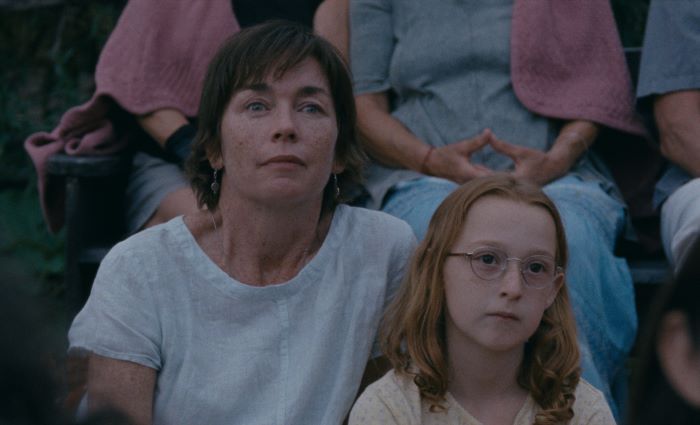
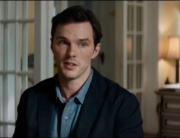
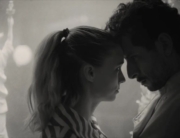
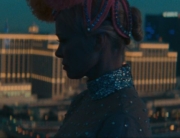
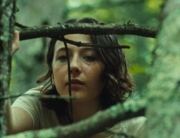
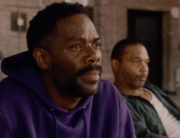
Leave A Comment